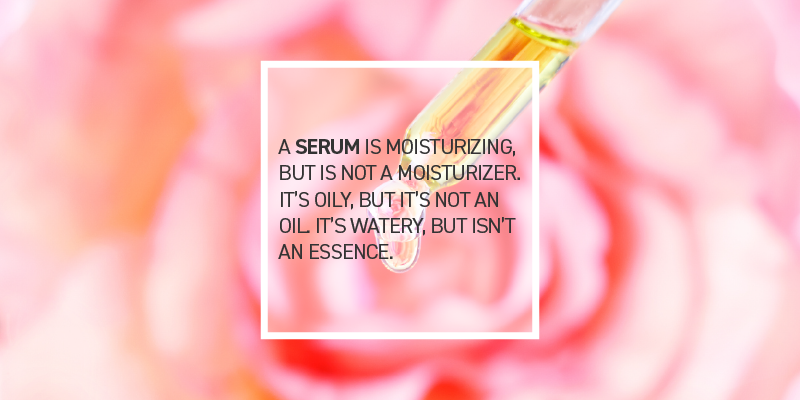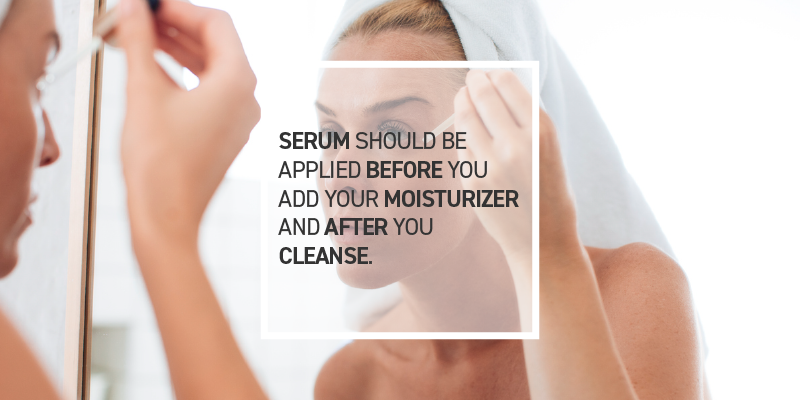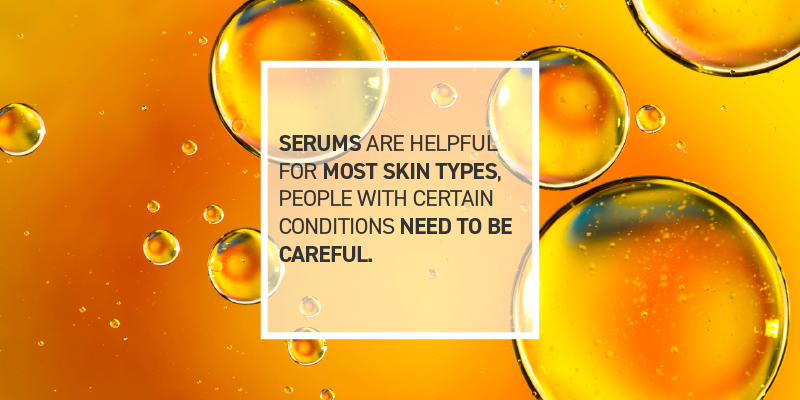Skincare Tips from MDSUN Skin Care®

Every day we’re bombarded with a huge variety of skincare choices. There are so many different recommendations on what you should and shouldn’t use and for a multitude of varying reasons.
You’ve been told you should incorporate a serum into the middle layers of your facial care routine, but you’re not quite sure how that works.
Then there’s the sticker shock. Serums tend to seem pricey for such small quantities. Just how do they get away with charging so much for what seems like so little?
We’re going to demystify the aura around facial serums and take a look at exactly what they do for you.
What Is a Face Serum?

Let us start by defining what a serum is not. A serum is moisturizing but is not a moisturizer. It’s oily, but it’s not an oil. It’s watery but isn’t an essence.
Hmmm. So then what is a serum?
Serums are thin, liquid-based products that are much lighter than creamy moisturizers. They are something you apply to your face after cleansing but before moisturizing. They deliver a potent layer of ingredients directly into your skin. They are lightweight, nutrient-packed, and are a key ally in battling for healthy, beautiful, glowing skin.
You could very well consider them a supplement shot for your skin because they are packed full of vitamins and antioxidants to protect you from the ravages of free radicals, which contribute to the premature aging process. They’ve got such a high concentration of antioxidants, anti-inflammatories, and hydrators, making them perfect for targeting specific concerns like wrinkles, dullness, acne, or hydration.
They contain powerful moisturizing ingredients to help skin retain moisture, but they don’t create a barrier on top of the skin like moisturizers do to help retain all those good ingredients.
When Should I Apply a Face Serum?

A serum works best when it’s allowed to sink deep into the skin, so it should be applied before you add your moisturizer and after you cleanse. If your skin care regimen includes a toner after cleansing, smooth on your serum between the toner and moisturizer. All you need is a pea-sized amount for your entire face.
How Does A Serum Work?
Ni’Kita Wilson, a cosmetic chemist and Vice President of Research and Innovation at Englewood Lab describes why:
“The beauty of a serum is that most of the fluid is eliminated, so what you’re left with is a high concentration of active ingredients.” Serums contain the most potent dose of anti-aging ingredients — antioxidants, peptides, and skin brighteners such as kojic acid — you can find in nonprescription products. “They’re the true workhorses of any product line,” Wilson says.
They’re very efficient, so just a few concentrated drops of the product will do. Serums are made up of very small molecules, so the skin absorbs them quickly and deeply. They have a lipid-soluble base, so they can dissolve/mix/interact with fat. This allows the active ingredients to penetrate into the skin instead of just lying on the surface. That means highly-concentrated doses of beneficial antioxidants can be delivered directly to the inner layers of skin. “By leaving out many of the heavier ingredients that are found in traditional moisturizers, [face serums] contain a much higher proportional concentration of active ingredients,” says Dr. Carlos A. Charles, Founder and Medical Director of Derma di Colore in Chelsea.
Many serums are formulated for specific purposes to target skin problems at the core. There are so many variations on the market, choosing one may prove to be difficult, but that also means you have plenty of options. Check your ingredients to choose the best serum for concerns like aging, brightening, or sun damage. Keep your skin problems in mind when you select your serum.
Serums May Not Be For Everyone

Serums are helpful for most skin types, people with certain conditions need to be careful. They are not necessarily for everyone. Because of the lighter liquid or gel-like texture, a serum may be a poor match for those suffering from chronic skin conditions like rosacea, psoriasis, or eczema. These problems weaken the skin barrier, so a serum may cause irritation by penetrating too quickly. If you suffer from one of those problems, you may want to consult your dermatologist before trying a serum.
Is a Serum Worth the Cost?
Serums tend to be a bit pricier than most of your other skincare products, but there’s a really good reason. Keep in mind that they are full of super-concentrated beneficial ingredients and are really potent. Remember how they blend nicely, so a little bit goes a long way. Pound for pound they’re more expensive, but they are definitely giving you more bang for your buck!
Skin Care Tips From MDSUN Skin Care®
Please Visit Our Official Website - MDSUN Skin Care




Comments
Post a Comment